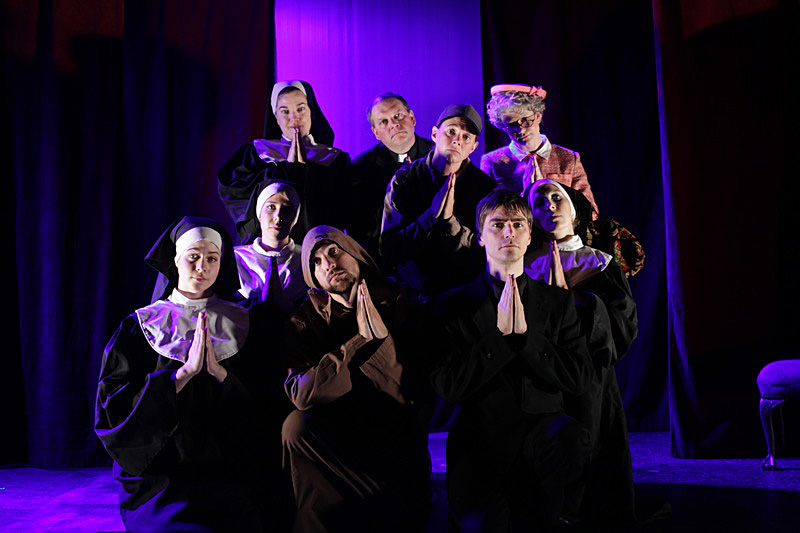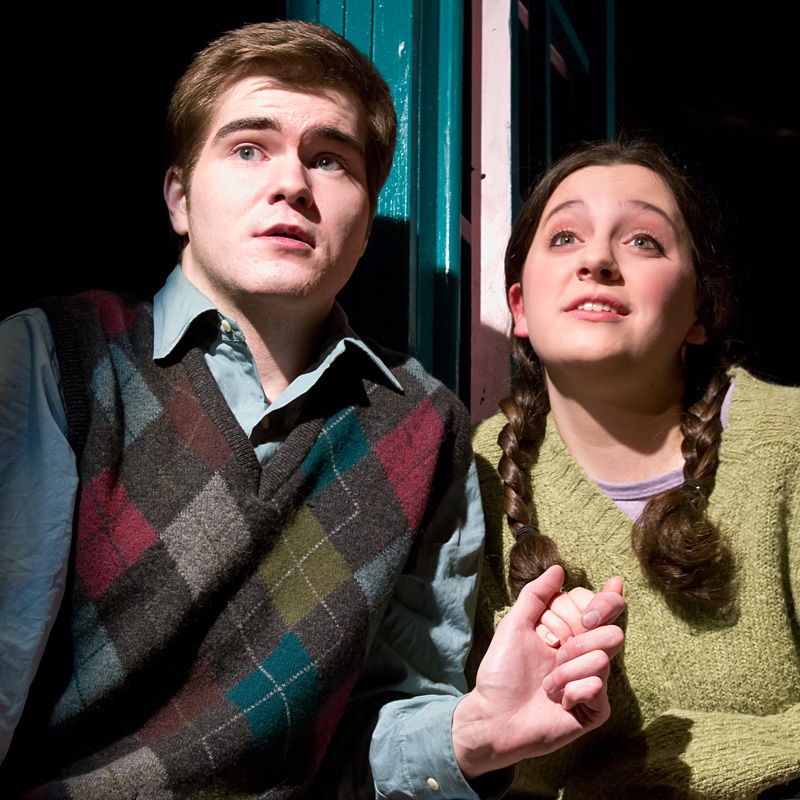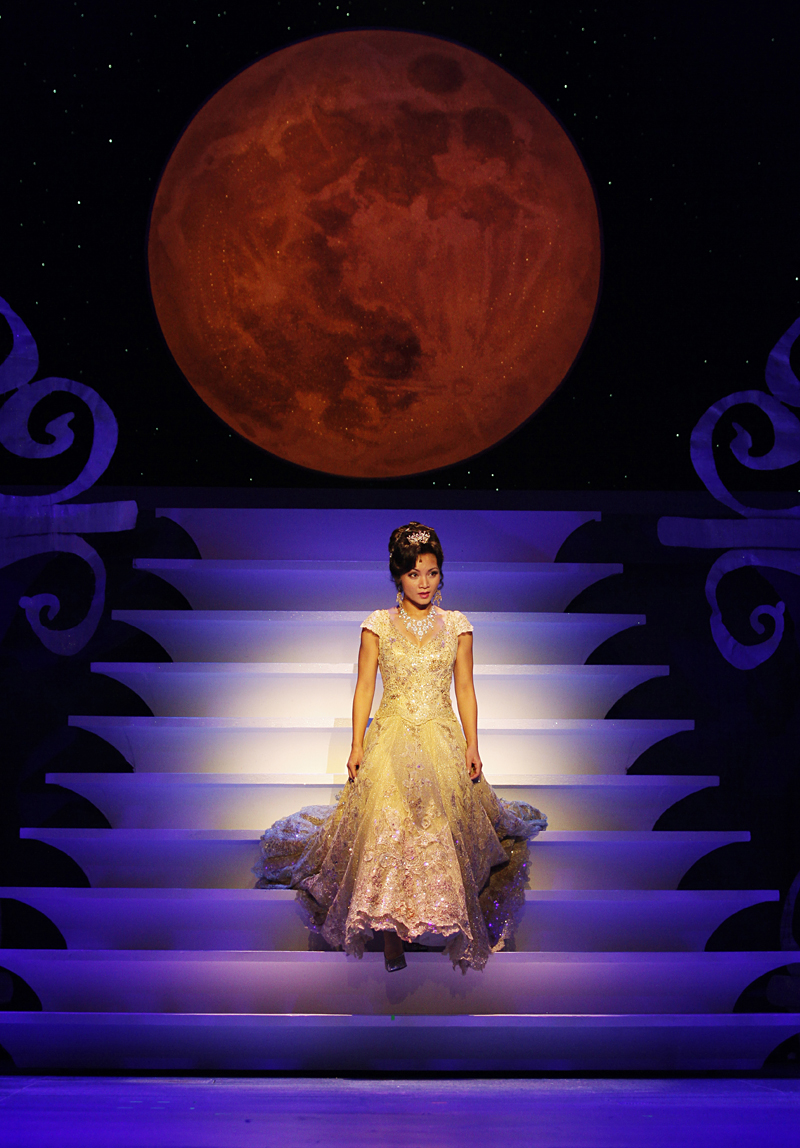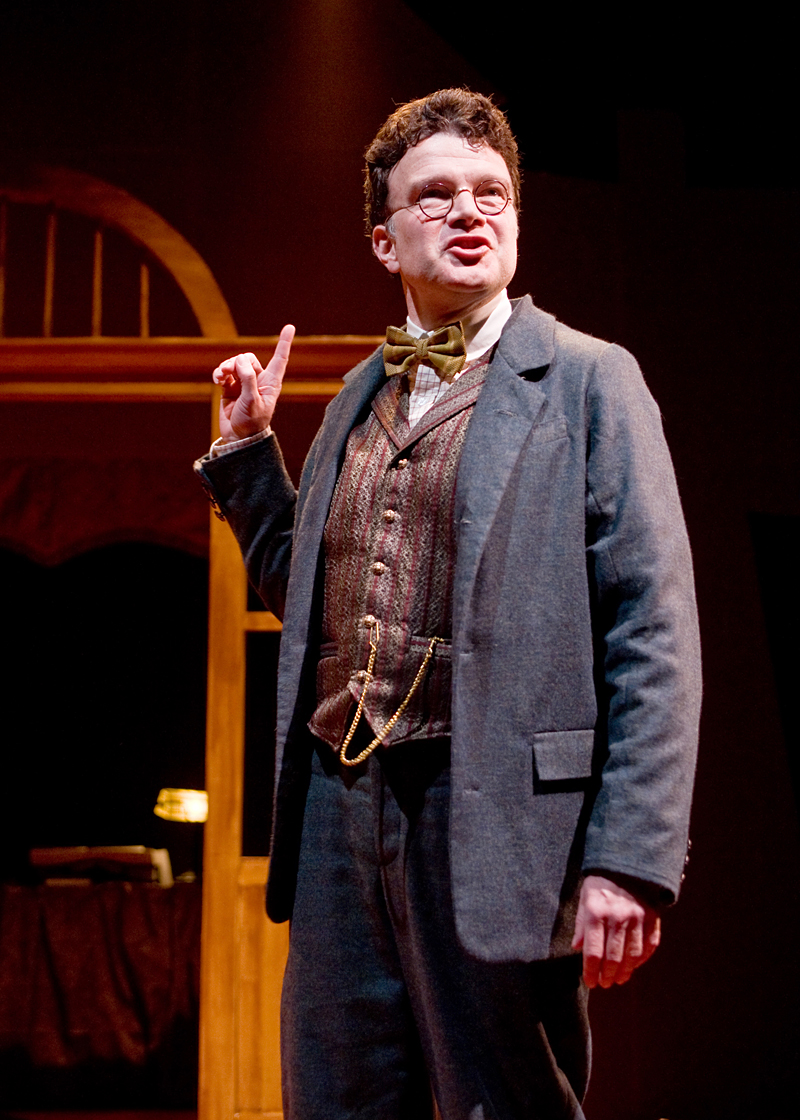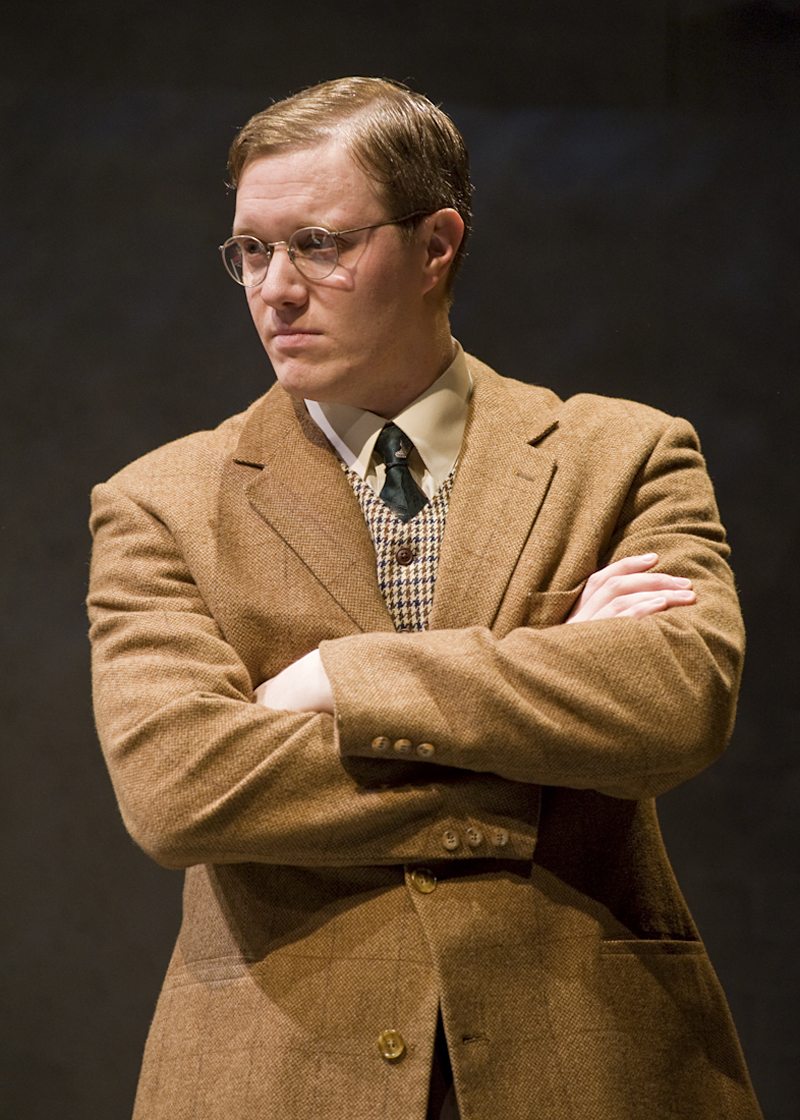Priests and nuns have been trying to kill each other at Annex since 2009, when local playwright Scot Augustson debuted the first installment of his profane serial comedy. It’s a soap opera of power, revenge, and romance. Even if you’ve seen every prior Penguins episode, you probably haven’t kept track of the details. To fill you in, there’s a quick recap at the opening of the show, during which you realize that the details matter very little. The head priest (Chris Dietz) and the head nun (Lisa Viertel) exist primarily to destroy each other; if there’s a rational basis for this mutual desire, Augustson has chosen not to share it with the audience.
In this fifth and final installment of Penguins, there’s an overwhelming amount of promising material: lesbian nuns, pregnant nuns, murderous nuns, bombs, meth, and pillow fights. The main plot has something to do with a stolen painting, a Vatican conspiracy, and Sister Wendy Beckett, although the specifics are unclear and unimportant. With all that potential, it’s disappointing that Penguins never really draws in the audience. What’s missing here is intelligence. The characters are all profoundly stupid, which makes the show something like Dumb and Dumber Go to the Cathedral. Most of the jokes rely on the belief that there’s something inherently funny about nuns saying “hand job” and “cunt.” That may be true for some nuns, but not for these nuns. There’s nothing godly or pious or even studious about these particular women of the cloth; they’re just broadly sketched maniacs wearing habits.
As with all former episodes of Penguins, Bret Fetzer again is the director. But if there were any subtlety in Augustson’s script, it’s been stomped out in the production. The performers never miss an opportunity to deliver a joke directly to the audience. They’re an enthusiastic troupe, eager to take this material to its most farcical level. With good farce, though, the key often is restraint. Occasionally they succeed, and there are a few moments of sincere laughter. But when the only goal of a play is to be funny, that isn’t quite enough.
